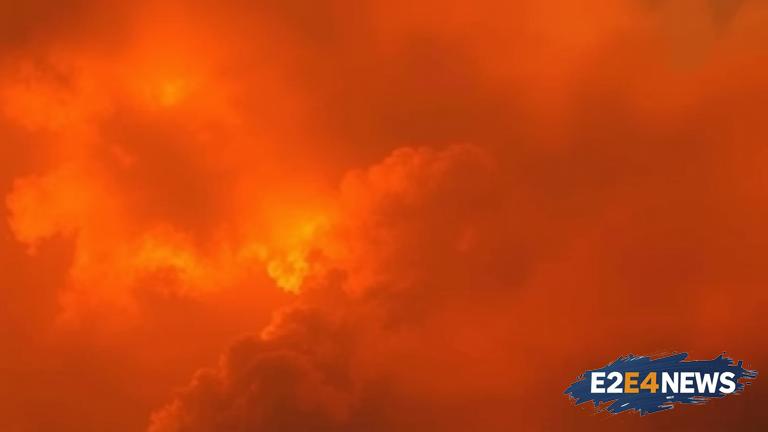A massive cloud of wildfire smoke from Canada has swept across the Midwest, causing air quality to plummet and prompting unprecedented health alerts. The smoke, which originated from wildfires in Canada, has been carried by strong winds into the region, affecting several states including Illinois, Indiana, Michigan, Ohio, and Wisconsin. The air quality index has reached hazardous levels, with particulate matter (PM) concentrations exceeding safe limits. This has led to a surge in respiratory problems, with hospitals reporting an increase in patients seeking treatment for asthma, bronchitis, and other breathing difficulties. The smoke has also caused visibility to decrease, making it difficult for people to navigate roads and highways. Furthermore, the poor air quality has forced schools and businesses to close, disrupting daily life for millions of people. The situation is particularly dire for vulnerable populations such as the elderly, young children, and those with pre-existing medical conditions. Health experts are warning people to stay indoors, avoid strenuous activities, and wear masks when venturing outside. The smoke has also raised concerns about the long-term effects on cardiovascular health, as particulate matter can cause inflammation and damage to blood vessels. In response to the crisis, local authorities have implemented emergency measures, including distributing masks and setting up air quality monitoring stations. The National Weather Service has issued air quality alerts, warning people of the hazardous conditions. Meanwhile, firefighters are battling to contain the wildfires in Canada, with support from international teams. The Canadian government has declared a state of emergency, mobilizing resources to combat the fires. As the situation continues to unfold, residents are advised to stay informed and follow safety guidelines to minimize their exposure to the toxic smoke. The economic impact of the disaster is also being felt, with businesses suffering losses due to closures and supply chain disruptions. The environmental consequences of the wildfires are also a concern, with the smoke contributing to climate change and affecting local ecosystems. In the midst of this crisis, researchers are working to develop new technologies to mitigate the effects of wildfire smoke, including advanced air filtration systems and early warning systems. The incident highlights the need for international cooperation to address the global issue of wildfires and their far-reaching consequences. As the Midwest struggles to cope with the aftermath of the smoke, the region is bracing for potential long-term effects on public health and the environment. The disaster serves as a reminder of the importance of disaster preparedness and the need for sustainable forest management practices to prevent such catastrophes in the future.





